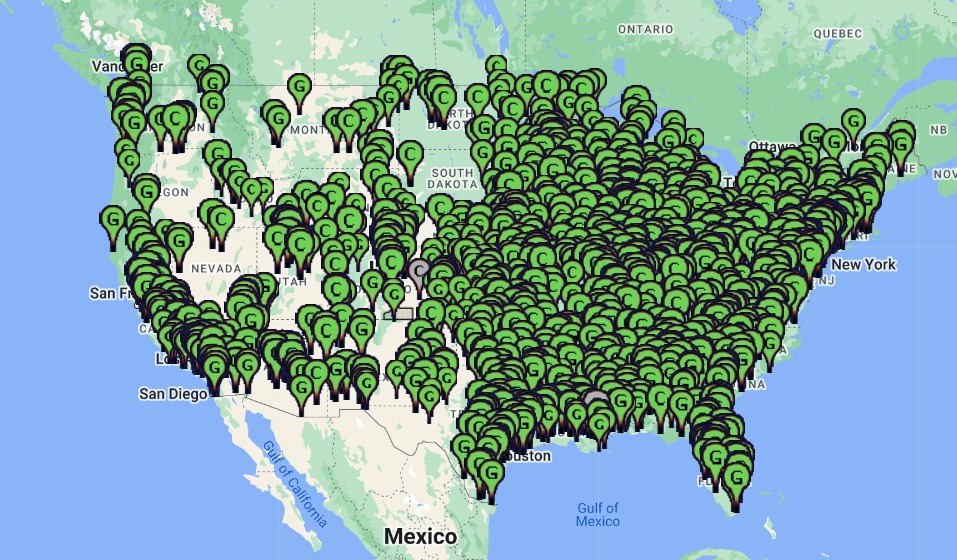-
Court Rejects EPA Rule that Deferred Carbon Standards for Biomass Industry
Court Rejects EPA Rule that Deferred Carbon Standards for Biomass Industry – by Jeremy P. Jacobs and Jean Chemnick, July 12, 2013. Source: Environment and Energy Daily A three-judge panel scrapped a U.S. EPA rule today that had given biomass-burning facilities a pass on compliance with federal greenhouse gas emission standards. The U.S. Court of Appeals for…
-
Toxics Release Inventory: Petition to EPA to Make Incinerators Report
Following major chemical accidents in the 1980s, people fought for Congressional passage of the Emergency Planning and Community Right-to-Know Act of 1986. This included the creation of a Toxics Release Inventory (TRI) database managed by the U.S. Environmental Protection Agency (EPA). Since 1988, for hundreds of toxic chemicals, we’ve had data reported by chemical plants, oil refineries, and many…
-
Waste Database
The searchable database below allows users to determine which facilities their municipal solid waste (MSW) ends up in. Knowing this crucial information empowers residents to be informed about the impact of the trash they generate. For example, if you determine that your trash is going to an incinerator (many times an example of environmental racism),…
-
Florida: Trash Incineration Capital of the United States
Florida has more trash incinerators and more trash burning capacity than any state in the nation. Since the 2021 closure of the Bay County incinerator, there are now 10 trash incinerators in Florida at nine sites. Incineration is the most expensive and polluting way to manage waste or to make energy. It’s dirtier than burning coal, and worse…
-
Incineration and Environmental Racism
Trash incinerators (a.k.a. “waste to energy” facilities) in the United States are located in communities where people of color (especially Black residents) are disproportionately impacted. The largest and most polluting trash incinerators tend to be in communities of color, a major environmental justice issue. The trends show that race is more of a factor than…
-
Nuisance Lawsuit against Covanta Plymouth Renewable Energy trash incinerator
2:20-cv-04330-HB Lloyd v. Covanta Plymouth Renewable Energy, LLCHARVEY BARTLE, III, presidingDate filed: 09/03/2020Date of last filing: 04/01/2021 Doc.No. Dates Description 1 Filed & Entered: 09/03/2020 Complaint (IFP or Government Plaintiff) Filed & Entered: 09/09/2020 Summons Issued 2 Filed & Entered: 09/10/2020 APPLICATION for Admission Pro Hac Vice (Credit Card) 3 Filed & Entered: 09/10/2020…
-
Clean Energy and Zero Waste Produce the most Jobs
Job Creation: Reuse and Recycling vs. Disposal Type of Operation Jobs per 10,000 tons ofdiscarded material per year Product Reuse Computer Reuse 296 Textile Reclamation 85 Misc. Durables Reuse 62 Wooden Pallet Repair 28 Recycling-based Manufacturers 25 Paper Mills 18 Glass Product Manufacturers 26 Plastic Product Manufacturers 93 Conventional Materials Recovery Facilities (recycling sorting centers)…
-
Trash Incinerator Ash – Nearly 30 tons for every 100 tons burned
For every 100 tons burned in an incinerator, about 30 tons of toxic ash are produced. This is evidenced by the data from various incinerators. Below is data from trash incinerators in Pennsylvania, Maryland, and Virginia, where state waste disposal databases provide the tonnages burned and tons of ash disposed. Pennsylvania now provides this raw…
-
Beyond Incineration: Best Waste Management Strategies for Montgomery County, Maryland
Covanta’s trash incinerator in Montgomery County, Maryland is the largest air industrial polluter in the county, by far. Following a massive waste pile fire that burned for nearly two weeks in late 2016, we’ve been supporting our member group, Sugarloaf Citizens’ Association, to close this incinerator for good. We worked with them and other local…
-
Covanta’s trash incinerator, the largest air polluter in Camden County, NJ
Camden for Clean Air formed in May 2020 to stop plans to keep the Covanta Camden trash incinerator alive by having it serve as the power source for a proposed microgrid. The proposed microgrid would keep the power going for the Camden County Municipal Utilities Authority (CCMUA) sewage treatment plant in Camden so that it…
EJ Communities Map

We are mapping all of the existing, proposed, closed and defeated dirty energy and waste facilities in the US. We are building a network of community groups to fight the facilities and the corporations behind them.
Our Network
ActionPA
EJnet
Corporations
Justice Map
Spatial Justice Test
